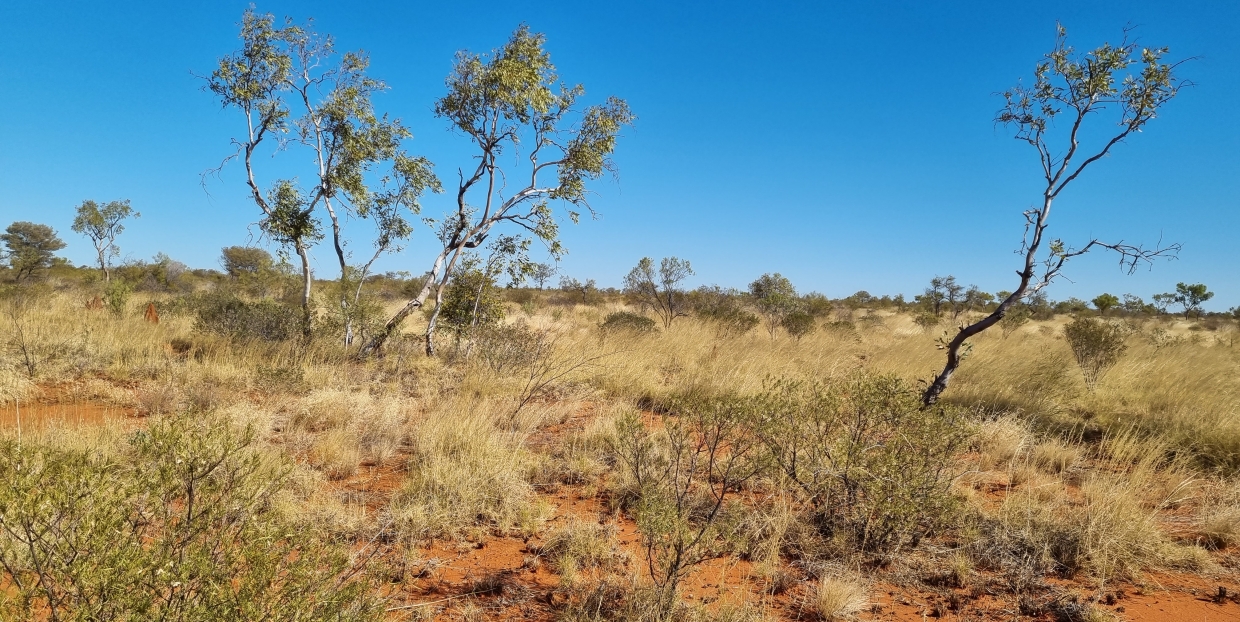New NT report contributes to a groundswell for change
A report released today claims modern approaches to making policy decisions will deliver better outcomes in the Northern Territory’s contentious water allocation debate.
Specialists from Watertrust Australia say that the NT is particularly well placed to embrace new, best practice consultation and decision making. Getting this right will create water policy that Territorians have confidence in and ensure freshwater is allocated fairly in the Western Davenport region north of Alice Springs and elsewhere.

The report, "Lessons Learned: Collaborative water allocation planning in the Northern Territory", was written by Watertrust Australia, at the invitation of the Western Davenport and Ti Tree Water Advisory Committee, and the Northern Territory Department of Lands, Planning and Environment.
Recent studies have highlighted a troubling decline in trust in government. This erosion of trust is closely tied to perceptions of a lack of transparency and dissatisfaction with how decisions are made.
Clearly, there is a crying need for better policymaking – particularly in water – with processes that connect diverse stakeholders, foster meaningful dialogue, and prioritise transparency and inclusivity. A need Watertrust has evolved to fill.
Using a highly collaborative and thorough approach Watertrust finds common ground and overcomes policy deadlocks; all critical to securing Australia’s water future.
The report released today was drafted before major last-minute changes to the Western Davenport Water Allocation Plan, the change of government in the Territory last August, and subsequent reversal of the earlier changes by the new government just before Christmas. Exactly the kind of volatility Watertrust specialises in negotiating.
According to Watertrust’s Darwin-based Principal Kate Peake, “the report details practical next steps to rebuild trust through good processes based on ‘lessons learned’. It outlines short-term improvements and future directions that will gain better public acceptance of future water allocation decisions.”
“Wide stakeholder concern and uncertainty, clearly demonstrated by radical changes at the end of a three-year planning process, highlight the need for reform,” she says.
Watertrust’s involvement in the Western Davenport water allocation planning process followed a request for help to navigate increasingly strained relations between the then-NT government and wider stakeholders.
“Key water stakeholders are increasingly losing faith in government processes” Kate said. “Until now, lack of trust has marred discussions about the future of the Western Davenport region; our work demonstrates how healthier, transparent processes lead to better engagement with stakeholders and ultimately better outcomes for the Territory.”
Watertrust continues to see the Northern Territory as a huge opportunity to get policy decision making right. In much of Australia, policy decisions are necessarily reactive because of the legacy of development, but the Territory’s unique circumstances, including historically low levels of development and intact, living Aboriginal culture, offers a unique opportunity and an imperative to “get it right” and deliver proactive policy decisions for the benefit of the community.
“A good ‘lessons learned’ process is about shaping the future not dwelling on the past,” says Kate. “Watertrust is focused on the opportunities ahead; we are uniquely placed to help realise a lasting, cooperative approach to improved policy processes that will lead to better and fairer water outcomes, in the NT and more widely.”
Watertrust finds common ground and overcomes policy deadlocks; all critical to securing Australia’s water future.